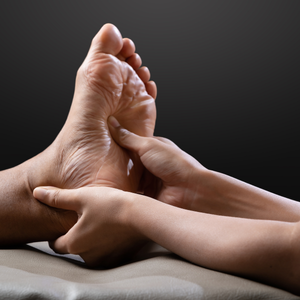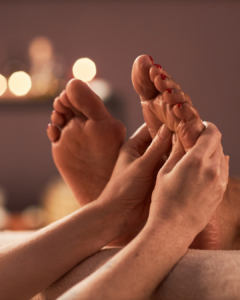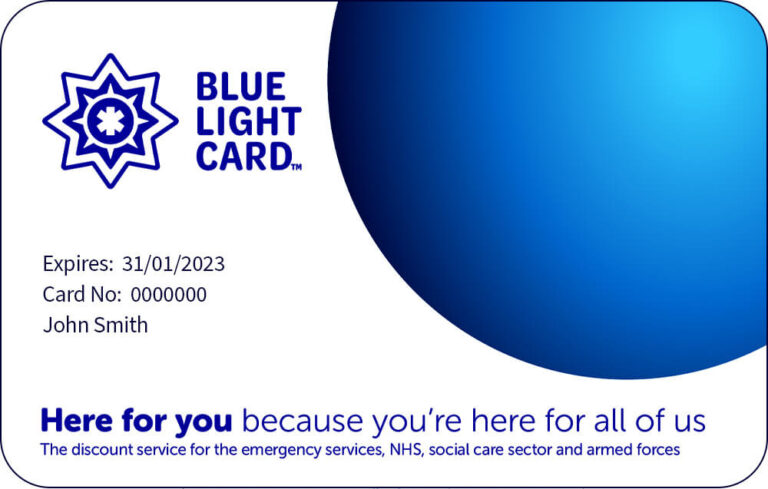5 Star Rated Expert Massage Therapy & Physiotherapy, Bathgate, West Lothian
- Home
- #1 Reflexology
Your #1 Choice for Reflexology
Reflexology is a powerful, non-invasive therapy that offers a natural path to better health and well-being. By applying pressure to specific reflex points on the feet, hands, or ears—each linked to different organs and systems in the body and encourages the body to heal itself, release tension, and restore balance. Choosing reflexology means choosing a holistic approach that treats the whole person, not just the symptoms.
One of the main reasons people turn to us is for stress relief. In today’s fast-paced world, stress is a common factor in many health issues. By deeply relaxing the body and mind, this helps to calm the nervous system and reduce the physical effects of stress. Many clients report feeling a sense of peace and clarity after just one session.
Many benefits include;
- improves blood circulation,
- encourages lymphatic drainage,
- promotes detoxification.
These benefits help the body function more efficiently and support the immune system. For those dealing with chronic pain, hormonal imbalances, digestive issues, or sleep disturbances, reflexology can provide lasting relief and support ongoing health maintenance.
Unlike some other therapies, reflexology is gentle and suitable for nearly everyone, regardless of age or health condition. It can be used alongside conventional medical treatments or as part of a wellness routine.
Choosing reflexology is a step toward natural self-care. It empowers individuals to take control of their health in a nurturing, supportive way. Whether you are looking for physical relief, emotional balance, or simply a chance to relax and recharge, reflexology offers a safe, effective, and deeply restorative experience. It’s more than just a foot massage—it’s a journey toward whole-body wellness, where the body’s own healing abilities are encouraged and enhanced through the power of touch.
At the heart of what we do, we want to provide cost effective treatments that mean you can be healthy, pain free and that treatment is affordable to as many people as possible.

reflexology west lothian
What is Reflexology?
Often classified as a type of complementary therapy, alongside other techniques such as aromatherapy or acupuncture.
According to reflexology theory, the body is represented as a map, with each organ or system mirrored on these points. By applying targeted pressure to these reflex points, practitioners aim to restore balance, stimulate energy flow, and promote the body’s innate healing abilities.
Its origins can be traced back to ancient Egypt, where it was depicted in tombs as early as 2330 BCE. Additionally, it is believed to have been practiced in China and India, where similar forms of foot therapy were employed for their healing benefits. In the early 20th century, American physician Dr. William Fitzgerald advanced the practice by developing “zone therapy,” which posits that the body can be divided into ten energy zones. He theorised that pressure on specific areas of the body would influence the corresponding zones, leading to the relief of various ailments.
Conclusion
While reflexology continues to be a subject of ongoing research, many individuals have found it to be an effective therapy for improving well-being, reducing stress, and managing pain. Although reflexology should not replace traditional medical treatments, it can serve as a valuable complementary therapy to promote relaxation and enhance the body’s natural healing processes. If you are considering reflexology, it is important to consult with a healthcare professional to ensure it is suitable for your specific health needs.
Effleurage: Long, sweeping strokes to warm up the muscles. Petrissage: Kneading and squeezing motions to release tension.
Using Clinical Orthopaedic Manual Therapy - stretching, joint mobilisation & Manipulation to address injuores and long standing problems
Slow, firm pressure targeting deeper muscle layers. Cross-fiber friction to break up adhesions and scar tissue.
Full assessments to find the cause of an injury and provide hands-on treatment and associated exercise plans
References
Abbott, J., et al. (2012). Reflexology and its effects on the immune system: A systematic review of the literature. Journal of Alternative and Complementary Medicine, 18(4), 383-389.
Field, T. (2012). Reflexology: A review. Journal of Complementary and Alternative Medicine, 18(9), 10-17.
McCullough, P., et al. (2005). Reflexology: Evidence of effectiveness. Journal of Pain Management, 9(3), 205-210.
Weng, L., et al. (2013). Reflexology in insomnia: A randomized controlled trial. Journal of Sleep Research, 22(5), 548-554.




